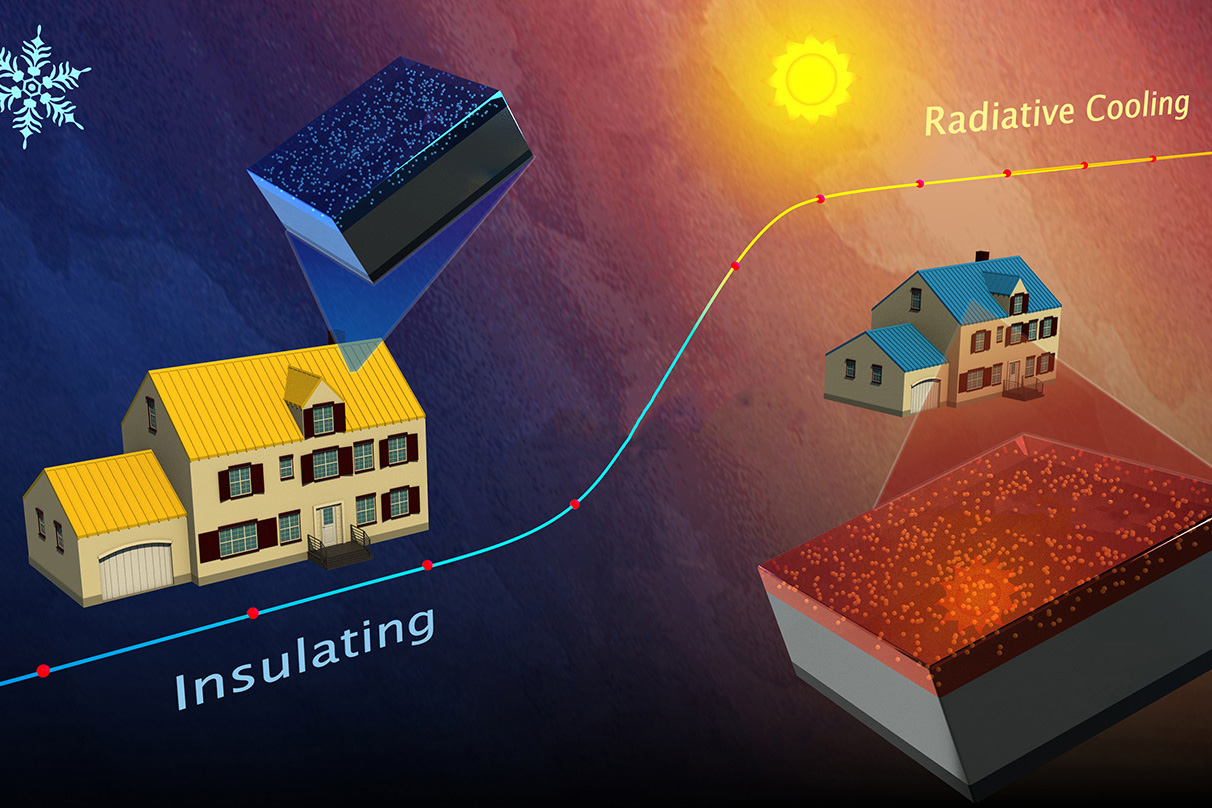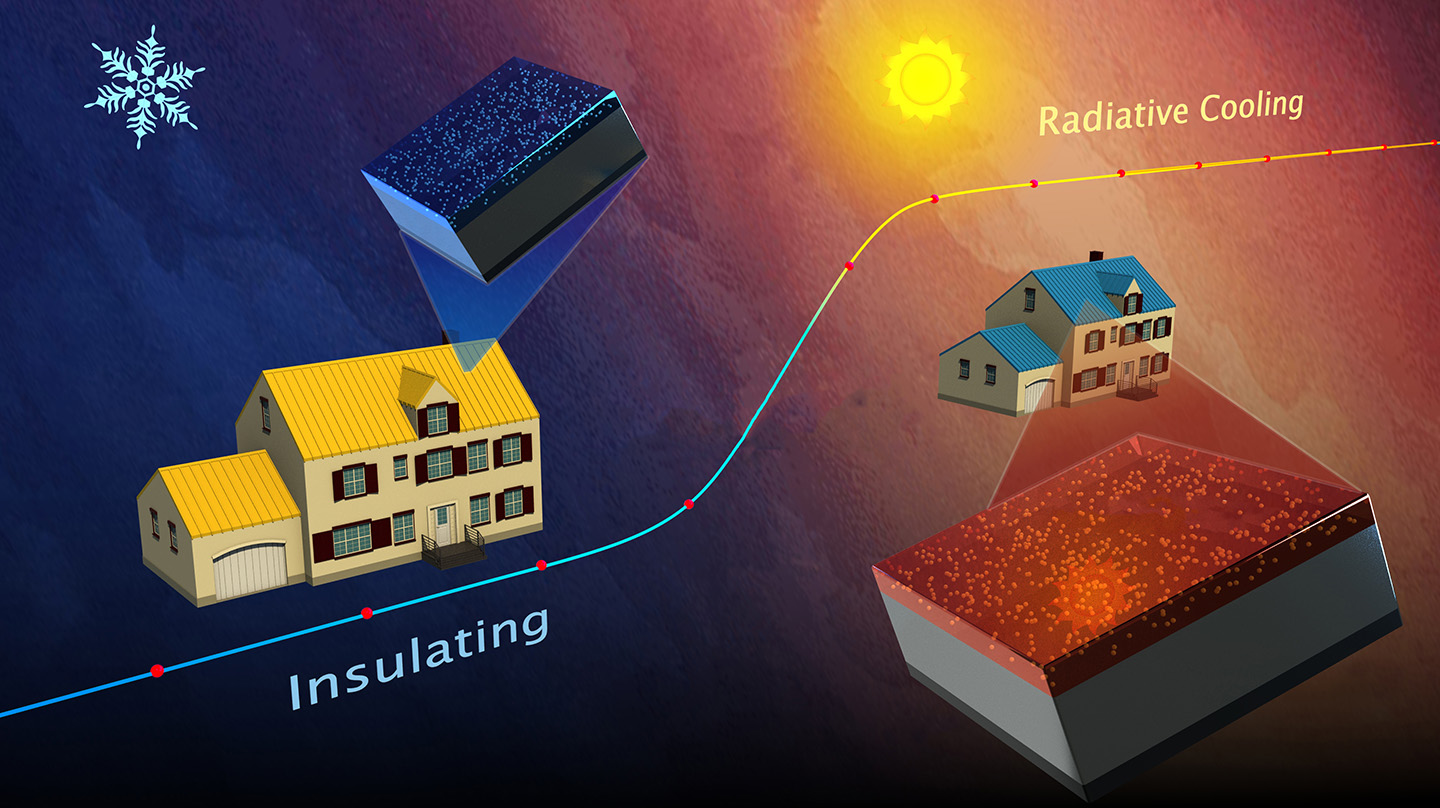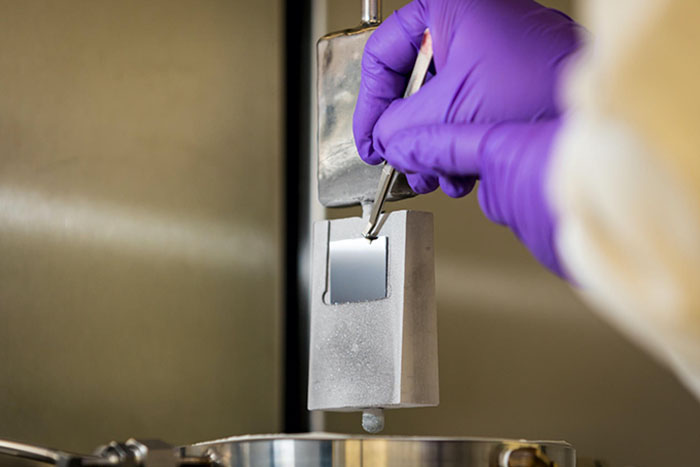Our Contribution
Imagine having a device that acts as an insulator when it’s cool and can also be an excellent radiator of heat when it gets hot—a smart material that knows how to change its behavior to handle different temperatures. Researchers at APL have made a significant breakthrough in the development of advanced materials technology that can efficiently manage thermal conditions, particularly in buildings and data centers, offering a promising solution to mitigate the impact of energy consumption on climate change. The research was outlined in “High Emissive Contrast of Adaptive, Thin-Film, Tungsten-Doped VO2 Composites,” published Aug. 15 in Applied Physics Letters. It focuses on adaptive, thin-film, tungsten-doped vanadium dioxide (VO2) composites that demonstrate high emissive contrast and tunable metal-insulator transition temperatures.




